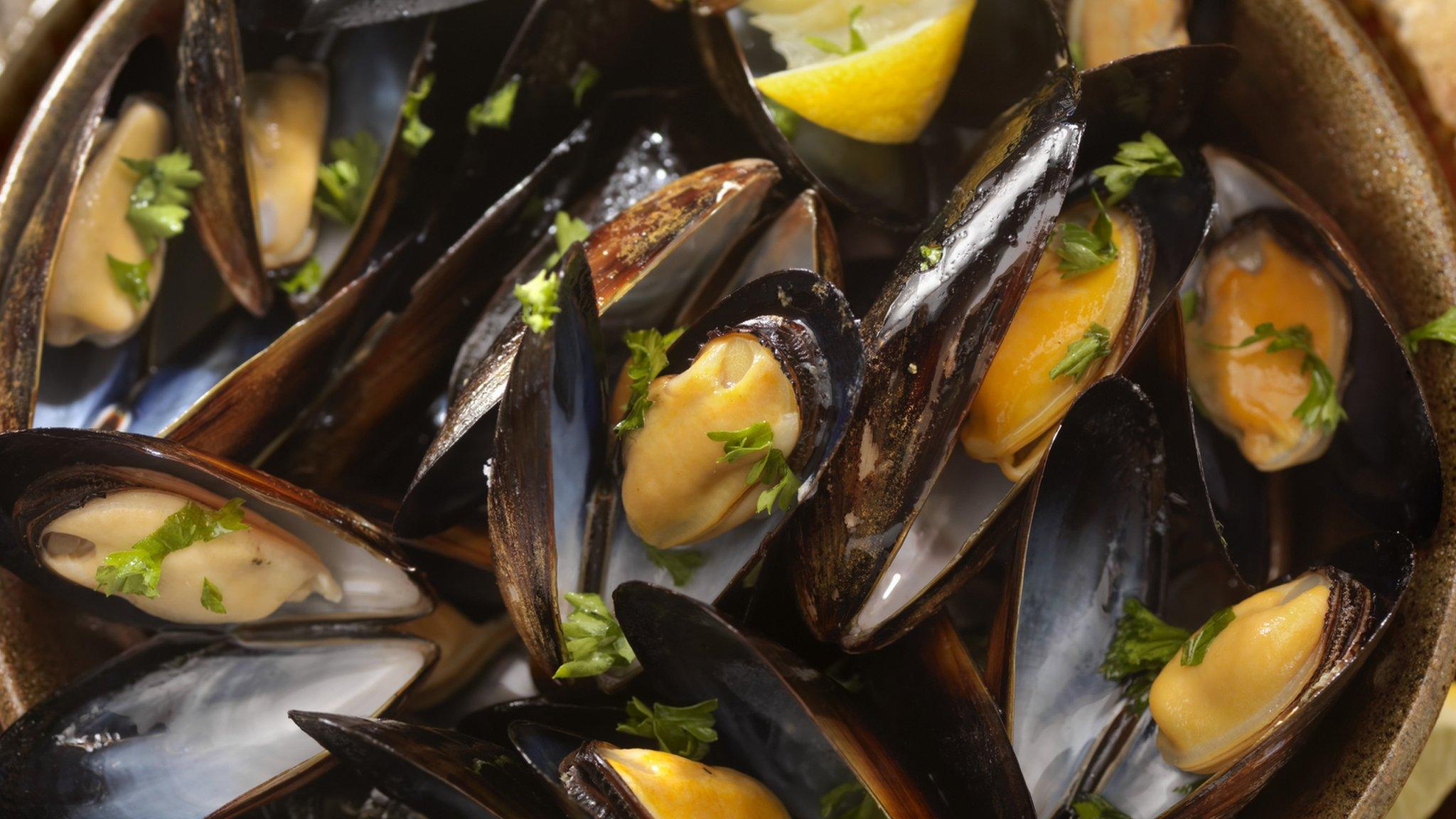Conwy marina mass oyster release aims to stop species dying out
- Published
Conservationists hope they will help reverse the impact of over-fishing
More than 1,000 oysters have been released in north Wales to try to stop the species dying out in the area.
The shellfish - once a major part of Wales's fishing industry - have been placed in nursery cages under the boardwalks of the town's marina.
Conservationists hope they will help reverse the impact of over-fishing and water quality on the species.
Celine Gamble said the project could bring "ocean superheroes back", after their decline in the last 200 years.
'Once a prolific fishery'
Ms Gamble, of the Zoological Society of London, which is leading the project in Conwy, said it was an "ambitious restoration project."
She said native oysters used to be found around Conwy in large numbers, but over-fishing, changes in water quality, and disease over two centuries, has seen them virtually disappear.
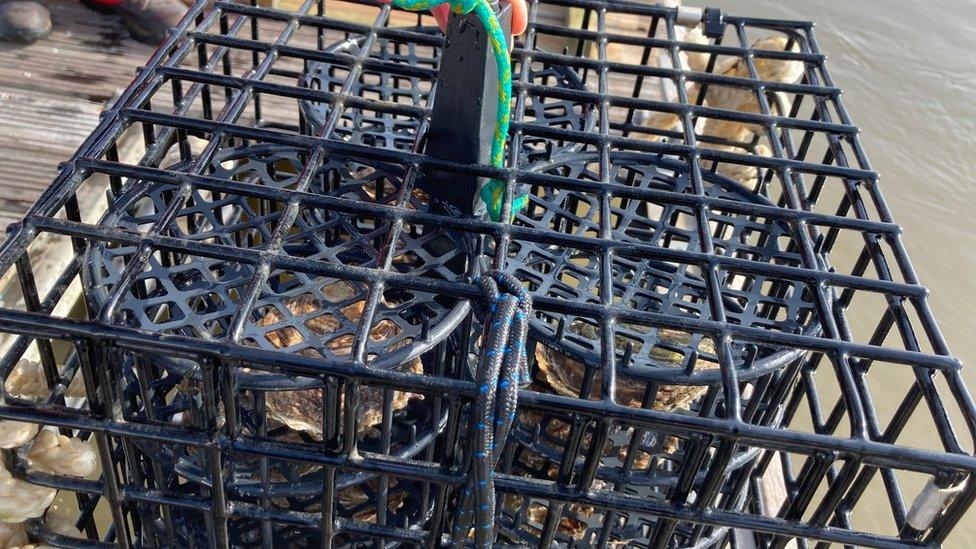
Oysters used to be found around Conwy in large numbers
"Wales once had a prolific fishery for the native oyster which provided a vital food source to the local coastal communities and contribution to the Welsh economy," she said.
"The significant Mumbles or 'Oystermouth' fishery was the largest in Wales, supporting 400 fishers across 188 boats."
"Close to Conwy, there were also productive native oyster beds during the 18th and 19th Centuries in the Menai Strait near Caernarfon and Bangor, off Puffin Island and around Anglesey in Rhoscolyn and Llanddwyn Island.
"In its heyday in the mid-1800s, Welsh oyster boats reported landing 8,000 oysters daily, but up to 15,000- 20,000 oysters in some areas."
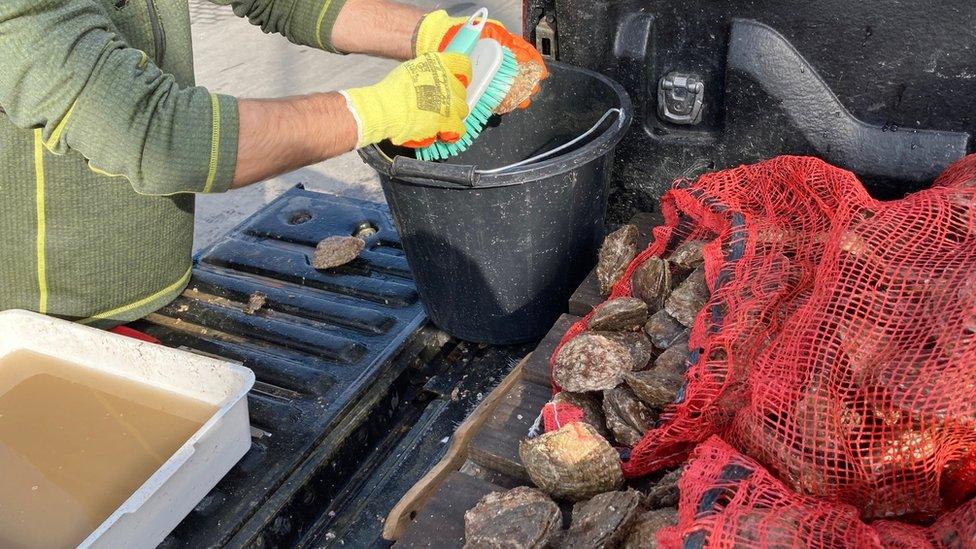
Oysters used to be popular in Welsh waters but numbers have fallen over the past 200 years
A similar project is also being run by Natural Resources Wales (NRW) in the estuary around Milford Haven.
The project has introduced juvenile oysters and clean shell material to places where oysters used to settle and breed.
They will be monitored to check for evidence of reproduction.
'Declining species'
Ben Wray, project manager and marine ecologist at NRW, said: "Restoring native oysters and associated habitat in Wales is extremely important.
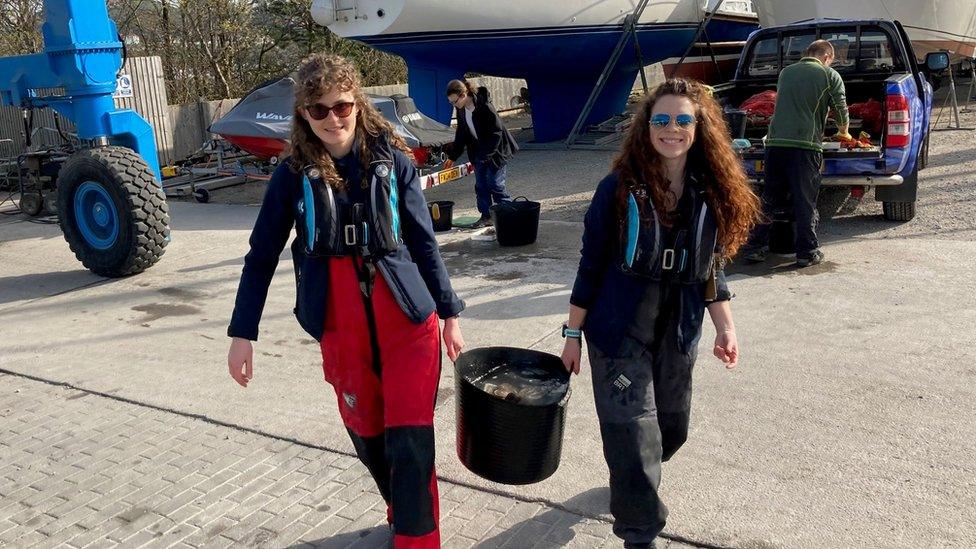
Over-fishing and water quality have seen numbers decline
"It improves the condition of the surrounding area and it is great for the wider environment which benefits people too.
He added the native oyster is a "threatened and declining species" and its restoration is one of NRW's main priorities.
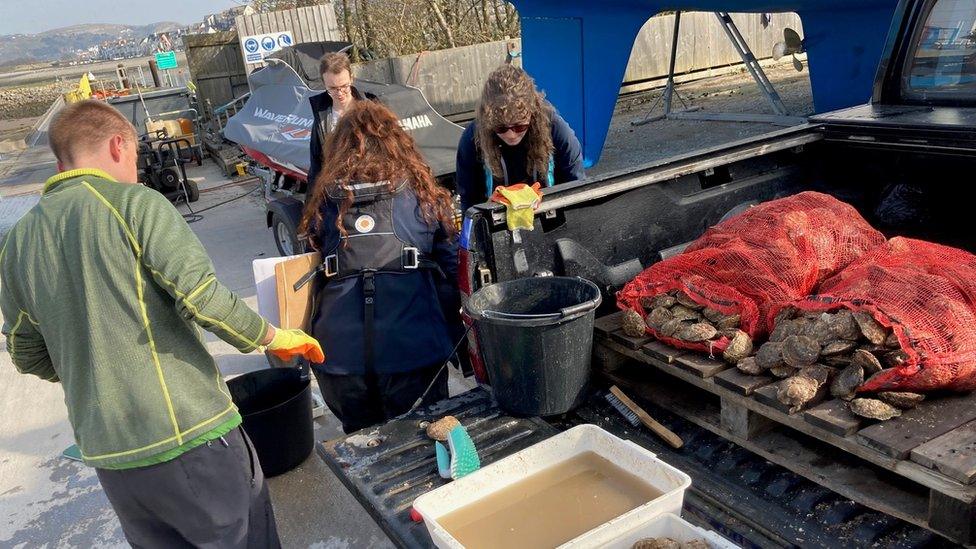
The oysters were released on Wednesday
At this stage, around 25,000 juvenile oysters have been placed in the estuary to be monitored.
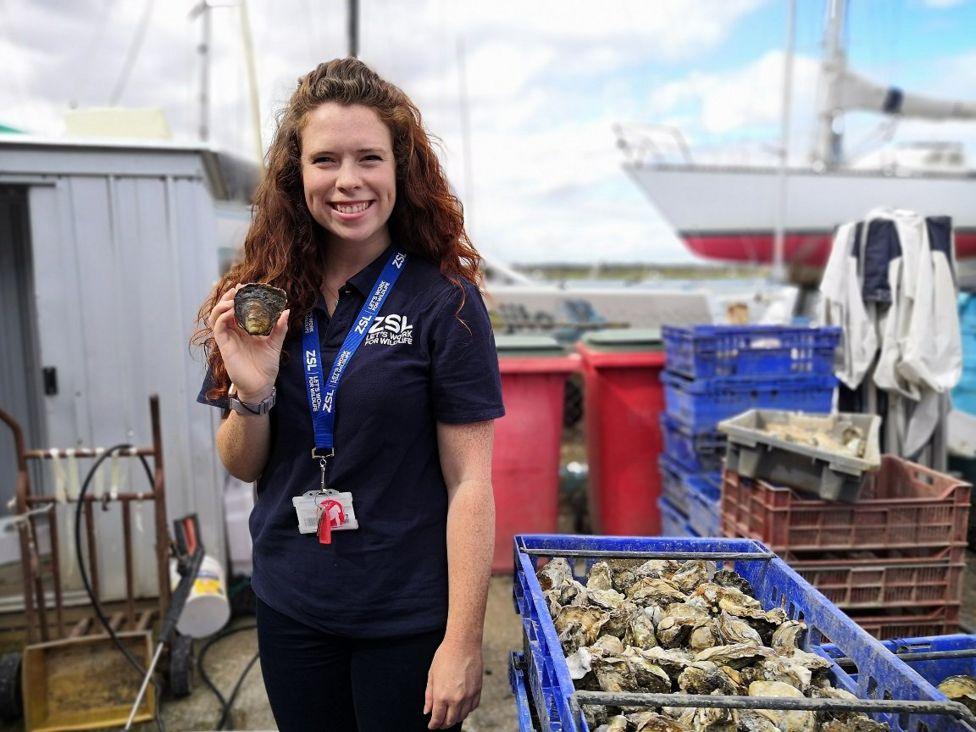
Project Manager Celine Gamble says oysters are 'ocean superheroes'.
Ben Wray added that if the project is successful, "oysters could be introduced on a larger scale and across additional sites".

KEEPING FAITH: Binge-watch the the third and final series
LAND OF THE WILD: SECRETS: Explore the hidden world of Welsh wildlife like never before

- Published5 August 2020
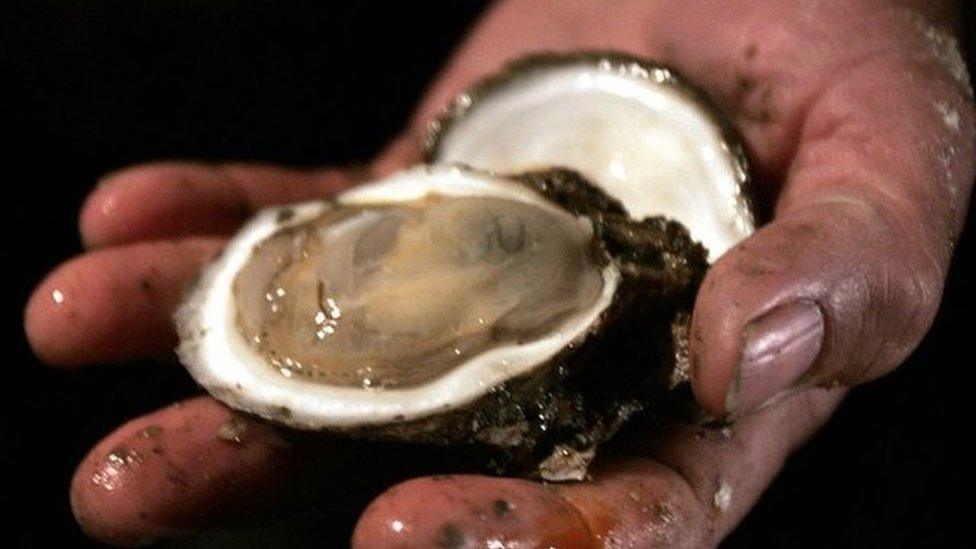
- Published16 January 2021
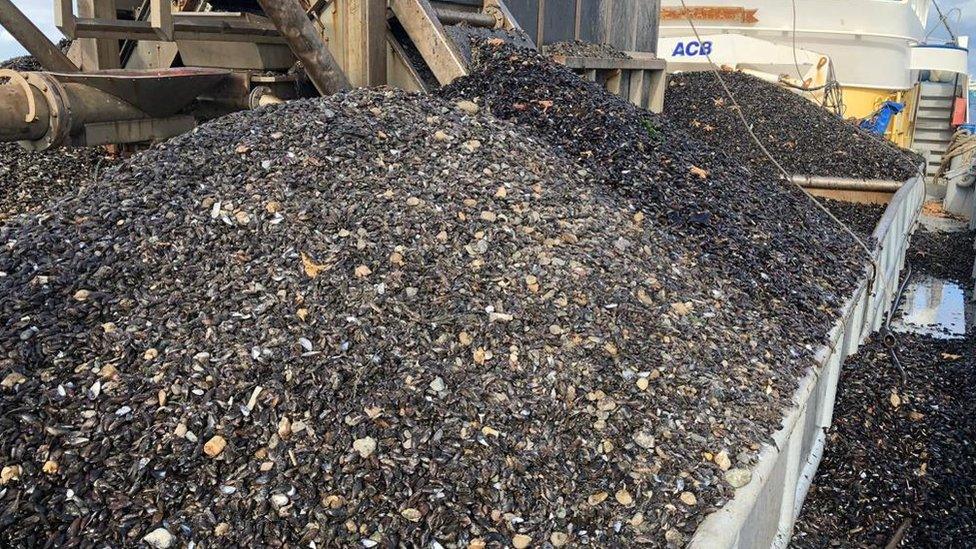
- Published2 February 2021
